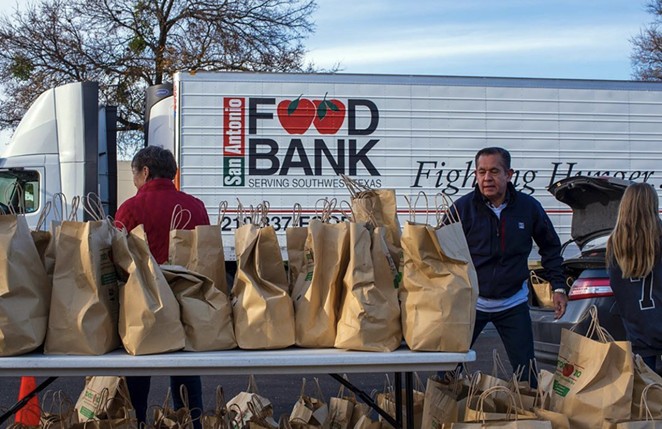More than half of Bexar County families were either in poverty or living a single financial misstep away from it in 2018, according to a new study by the United Ways of Texas.
During that period, 17% of Bexar County households fell under the U.S. poverty level. However, an even greater number — another 35% — were on the brink of financial crisis even though they earned too much to qualify for government assistance, the study found.
Members of that latter group — referred to as "asset-limited, income-constrained, employed," or "ALICE" — have jobs yet struggle to cover basic living expenses such as housing, transportation and child care.
"ALICE is your neighbor, no matter where you live in our city," said Jason Alemán, director of the United Way of San Antonio and Bexar County. "This is something that's going on in every ZIP code. It's not just a Westside, Eastside or Southside issue."
Bexar County's combined 52% ALICE and poverty-level threshold is a slight increase from the 51% reported in 2017. It's also higher than Texas' statewide total of 44%. In the Lone Star State as a whole, 14% of residents live below the poverty level while another 30% are considered ALICE.
Low-income workers in Texas and Bexar County face rising prices as their wages stagnate, according to the report. They also tend to work in fields facing job insecurity and cuts to their working hours and benefits.
Alemán worries that the deep, and likely permanent, job losses brought on by the COVID-19 pandemic will only worsen those problems for local residents, driving up the number of ALICE families.
The key to giving more financial stability to Bexar County families is better investment in education and workforce development, he said. Both are key to ending the generational poverty that has long plagued the San Antonio area.
Alemán said city council's recent vote to allocate $75 million in federal coronavirus recovery funds to workforce development is a step forward. However, local policymakers must sustain those efforts if they want to bring more financial stability to residents.
"My problem with [council's action] is that it's temporary," he said. "That federal money is not going to continue to flow. It's a temporary shot in the arm."
Stay on top of San Antonio news and views. Sign up for our Weekly Headlines Newsletter.


